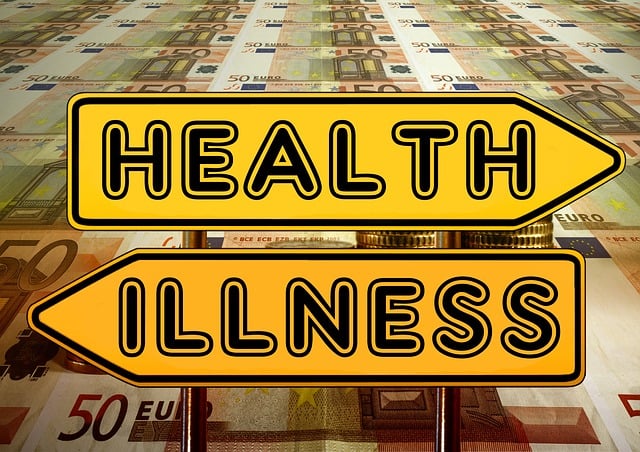Liability insurance is a critical financial safety net for individuals and businesses, protecting them from potential claims and lawsuits. It covers risks like property damage, personal injury, and professional negligence. Understanding liability insurance involves knowing types of coverage (general/professional liability), limits, deductibles, and exclusions. By choosing policies tailored to specific needs, users can ensure comprehensive protection against liabilities. For startups and small businesses, it offers cost-effective safeguarding against disruptions, enabling focused growth. The cost varies based on business nature, risks, size, location, and claim history. Getting affordable quotes involves assessing needs, comparing insurer offerings, and reading policy fine print to avoid subpar coverage. Liability insurance serves as a vital shield, mitigating unexpected legal claims that could cripple finances, offering peace of mind and financial security.
“Liability insurance is a shield for businesses, protecting them from financial turmoil caused by accidents or lawsuits. This comprehensive guide aims to demystify liability coverage, highlighting its significance and various types available. From understanding policy nuances to navigating cost factors, we provide insights on acquiring affordable quotes. Learn how to avoid common pitfalls and gain real-world perspectives on the impact of liability insurance. By the end, you’ll be equipped with knowledge to make informed decisions regarding this essential business tool.”
Understanding Liability Insurance: A Comprehensive Overview

Liability insurance is a crucial financial safety net for individuals and businesses, protecting them from potential claims and lawsuits. It covers various risks and damages that may arise from incidents related to your operations or activities. This includes situations like property damage, personal injury, or even professional negligence. Understanding liability insurance involves grasping several key components: types of coverage, limits, deductibles, and exclusions.
There are different types of liability insurance tailored to specific needs. General liability insurance is a common option, covering broad risks such as slips and falls on your premises, product liability, and legal fees associated with lawsuits. Professional liability insurance, also known as errors and omissions coverage, protects professionals like doctors or lawyers from claims of malpractice or negligence. Knowing these options enables individuals and businesses to choose the right policy that aligns with their specific risk profile and industry requirements, ensuring comprehensive protection against potential liabilities.
Why Is Liability Insurance Important for Businesses?

Liability insurance is a cornerstone of risk management for any business, regardless of size or industry. It shields owners from potential financial pitfalls, offering protection against claims related to bodily injury, property damage, and personal and advertising injuries. These risks can arise from various sources, such as accidents on premises, defective products, or even slander and libel. Without adequate liability coverage, businesses could face severe economic consequences, including legal fees, damages awards, and ruined reputations.
For startups and small enterprises in particular, liability insurance is a cost-effective way to safeguard against unexpected events that could disrupt operations and threaten financial stability. It allows business owners to focus on growth and expansion with the peace of mind knowing they have a safety net in place should something go awry. Effective risk management through liability insurance is not just about compliance; it’s about ensuring the long-term viability and resilience of any business venture.
Types of Liability Coverage: What You Need to Know

Liability insurance is a safety net that protects individuals and businesses from financial loss due to accidents or injuries caused by their actions. It’s essential to understand the different types of liability coverage available, as this knowledge will help you make informed decisions when choosing the right policy for your needs.
There are three primary types: general liability insurance, professional liability insurance (also known as errors and omissions coverage), and products/completed operations liability insurance. General liability covers a wide range of incidents on your premises, such as slips and falls or property damage. Professional liability is tailored for businesses like medical practices or legal firms, protecting against claims of negligence or malpractice. Products/completed operations liability shields businesses from issues arising from their products after they’ve left the company’s hands, including manufacturing defects or personal injury caused by product failure.
Factors Affecting the Cost of Liability Insurance

Several factors influence the cost of liability insurance, which is an essential aspect for businesses and individuals to consider when ensuring financial protection against potential risks. One significant factor is the nature of the business and its associated risks. Industries with higher risk profiles, such as construction or healthcare, often face more stringent regulations and, consequently, higher insurance premiums due to the increased likelihood of claims. For example, medical malpractice lawsuits can be costly for healthcare providers, leading to elevated Liability Insurance rates.
The size of the business, historical claims experience, and location also play pivotal roles. Larger companies with a broader scope of operations may encounter more complex risk scenarios, impacting premium costs. Conversely, businesses in areas with lower crime rates or fewer legal disputes might benefit from reduced insurance expenses. Additionally, an entity’s claim history significantly affects its Liability Insurance cost; frequent or substantial claims will likely result in higher premiums to account for the perceived increased risk.
How to Get Affordable Liability Insurance Quotes

Getting affordable liability insurance quotes is a straightforward process that involves several key steps. First, determine your specific needs and risk profile. This includes evaluating the type of coverage required, such as general liability, professional liability, or product liability, based on your business activities. Next, gather information about your potential risks and past claims history, if any. These details will help insurers assess your risk level accurately.
Once you have this information ready, shop around for quotes from multiple insurance providers. Utilize online platforms or consult with independent agents who can provide comparative quotes from various companies. Be sure to compare policies based on coverage limits, deductibles, and the overall cost. Additionally, consider the reputation of the insurer and their customer service track record to ensure a reliable and responsive experience should a claim arise.
Common Mistakes to Avoid When Purchasing Liability Insurance

When purchasing liability insurance, it’s crucial to avoid common pitfalls that can leave you underinsured or paying more than necessary. One major mistake is focusing solely on the price tag without considering the coverage limits and conditions. It’s essential to understand the scope of protection offered by the policy, including the maximum amounts for bodily injury and property damage. Opting for the cheapest option might save you a few dollars upfront, but it could leave you financially exposed if an unexpected claim arises.
Another error is assuming that all liability insurance policies are created equal. Different providers offer varying levels of coverage, exclusions, and additional perks. Take the time to compare multiple quotes from reputable insurers, reading the fine print carefully. Remember, the goal is to find a policy that aligns with your specific needs and provides adequate protection against potential liabilities.
Real-World Examples of Liability Insurance in Action

Liability insurance plays a crucial role in protecting individuals and businesses from unexpected financial burdens stemming from legal claims. Real-world examples illustrate its significance across various sectors. For instance, consider a coffee shop where a customer slips on a spilled beverage and sues for injuries. Without liability insurance, this incident could cripple the business with legal costs and damages. However, with adequate coverage, the insurance provider steps in to defend the cafe, covering legal fees and potential payouts while the matter is resolved.
Another scenario involves a construction company accidentally causing damage to a neighbor’s property during a building project. Liability insurance ensures that the contractor isn’t left with massive compensation demands. The policy compensates for repairs or replacements, protecting the business from financial ruin and fostering trust among clients who know they’re shielded from similar unforeseen events. These examples highlight how liability insurance acts as a shield, offering peace of mind and financial security in the face of potential liabilities.
